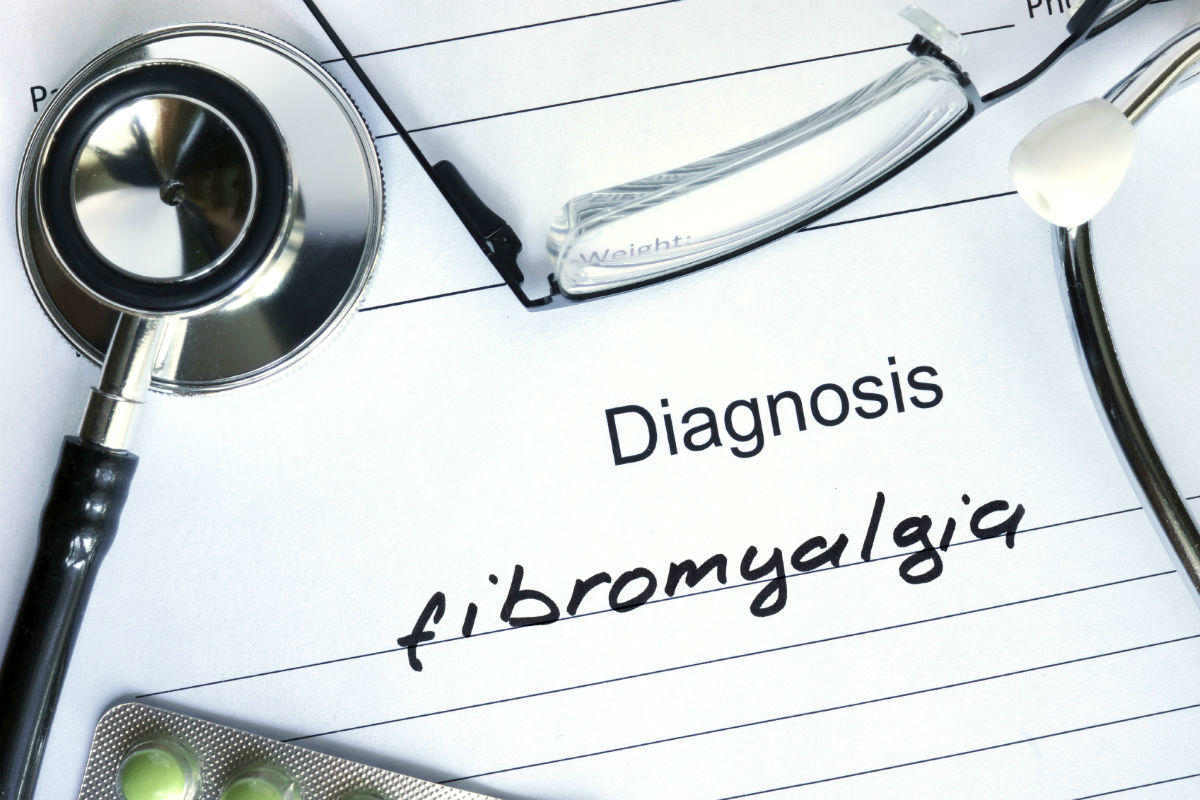Fibromyalgia causes widespread pain, making it difficult for a person to perform work and daily activities.

Fibromyalgia is a painful medical condition that affects more than 10 million Americans. It is a chronic pain syndrome and doctors are not sure what causes the syndrome. However, in most cases, it is attributed to traumatic events such as occupational illnesses, accidents, and surgeries. Fibromyalgia causes widespread pain and discomfort throughout the body, making it difficult for a person to perform work and daily activities. A worker who develops fibromyalgia in the course of employment may find it difficult to prove their claim for workers’ compensation and may need the help of a St. Louis work comp lawyer.
What Is Fibromyalgia?
Fibromyalgia is a condition that causes pain in the muscles, ligaments, tendons, and tender points throughout the body when pressure is applied. Common symptoms of fibromyalgia include:
- Chronic pain: A person may experience burning, shooting, radiating, nagging, and exhausting pain, which may not always be consistent in intensity and location. Some persons report that the symptoms become worse during certain times of the day. Stress, anxiety, and physical activity are known to aggravate the symptoms.
- Fatigue: 90 percent of persons report moderate to severe fatigue.
- Tenderness: Fibromyalgia may cause tender spots in the shoulders, upper buttocks, hips, elbows, knees, upper chest, and neck.
- Sleep problems: Some persons also have disturbed sleep patterns and tend to wake up frequently during the night, causing a person to feel tired and groggy.
- Depression and anxiety: Symptoms of fibromyalgia and the lack of relief can make a person feel hopeless and alone. A patient may need psychological help to fight emotional distress.
- Memory issues: Fibromyalgia patients may suffer short-term and long-term memory problems. This can affect a person’s ability to multi-task and make them incapable of performing even simple tasks.
Treatment for Fibromyalgia
Unfortunately, there is still no cure for fibromyalgia and the symptoms are often managed with pain medication. Commonly used medications include the use of analgesics such as acetaminophen, anti-depressants, and muscle relaxants. The U.S. Food and Drug Administration has approved the use of Lyrica for the treatment of fibromyalgia. Studies have been conducted to understand the efficacy of this drug for the treatment of fibromyalgia. The results have been quite promising, with about half of the respondents reporting an improvement in the condition after taking this medication.
Is Fibromyalgia Work-Related?
There are various possible causes of fibromyalgia including injuries, accidents, and traumatic experiences. Research has shown that a large percentage of people who suffer from fibromyalgia noted symptoms after a traumatic experience, such as a motor vehicle crash or a workplace accident. However, proving that the condition is a result of a workplace accident could be challenging.
Work Related Injuries
Work-Related Injuries
Work Related ACL Injury
Leg Amputation
Finger Amputation
Ankle Injury
Ankle Replacement
Arthroscopic Surgery
Work Related Arthritis
Accidental Asphyxiation
Work Related Asthma
Avulsion Injury
Back Injury at Work
Back Pain from Work
Lower Back Pain at Work
Chronic Back Pain
Head Injury Internal Bleeding
Internal Bleeding after Injury
Blood Related Illness
Broken Bones
Brain Injuries
Traumatic Brain Injury
Bursitis Work Related
Burn Injury at Work
Electric Burn
Chemical Burn
Calcaneus Fracture
Sudden Cardiac Arrest
Cardiovascular Disease
Carpal Tunnel Work Related
Cartilage Injury
Cervical Disc Replacement
Cervical Fusion
Chronic Illness
Work Related Chronic Pain
Work Related Concussion
Contagious Disease
Work Related COPD
Skin Corrosion
CRPS Disease
Crush Injuries
Cubital Tunnel Syndrome
Work Related Death
Degenerative Bone Disease
Degenerative Disc Disease Work Related
Reflex Sympathetic Dystrophy
Work Related Tennis Elbow
Elbow Injury
Epicondylitis at Work
Work Related Eye Injury
Fibromyalgia
Work Related Foot Injuries
Work Related Injuries to the Hand
Hand Arm Vibration Syndrome
Work Related Head Injury
Closed Head Injury
Open Head Injury
Work Related Hearing Loss
Heart Attack Work Related
Stroke at Work
Heat Stroke at Work
Intracerebral Hemorrhage
Hernia Work Related Injury
Work Related Herniated Disc
Hip Fracture
Hip Replacement
Hip Injuries
Intracranial Injury
Broken Jaw
Work Related Knee Injuries
Knee Fracture
Laceration
LCL Injury
Legionnaires Disease
Ligament Tear
Limb Loss
Lumbar Disc Replacement
Lumbar Fusion
Lumbar Spinal Fusion
MCL Tear
MCL Injury
Meniscus Tear
Work Related Mental Illness
Mesothelioma from Work
Work Related Muscle Problems
Work Related Neck Pain
Work Related Neck Injury
Nerve Damage from Work Related Injury
Neurological Disorders
Occupational Disease
Organ Damage
Pain and Suffering from Work Related Injury
Paralysis
Patella Fracture
Pelvic Fracture
Plantar Fascitis
Pre Existing Work Related Injury
Work Related PTSD
Radiation Sickness
Repetitive Stress Injury
Rhabdomyolysis
Rotator Cuff Tear
Rotator Cuff Surgery
Work Related Rotator Cuff Injury
Sciatica Work Related
Shift Work Disorder
Shoulder Fusion
Shoulder Impingement
Shoulder Injury
Work Related Shoulder Pain
Sick Building Syndrome
Skull Fracture
Spinal Cord Injury at Work
Spondylolysis
Sprain at Work
Work Related Repetitive Strain Injury
Work Related Stress
Stress Fracture
Subdural Hematoma
Work Related Tendonitis
Lost Tooth at Work
Trigger Finger Work Related
Vertebroplasty
Vision Impairment
Lost Vision at Work
Work Related Wrist Injuries
